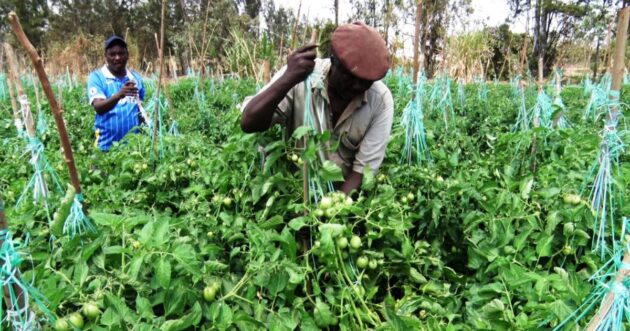
Critical role of insurance in climate resilience » Capital News
By Dr. Godfrey Tenesi
Agriculture is the backbone of many African economies, with millions of smallholder farmers depending on it for their livelihoods—whether they’re growing crops, raising livestock, or maintaining fisheries. According to the East African Community (EAC) website, agriculture contributes between 25% and 40% percent to the GDP of the region, while over 70 percent of its population relies on it for sustenance. From Kenya’s expansive tea plantations to Rwanda’s coffee farms, agriculture fuels local economies and sustains communities across the bloc.
However, this vital sector is increasingly vulnerable to the escalating threats of climate change, unpredictable weather patterns, and outbreaks of pests and diseases. These challenges are placing immense pressure on smallholder farmers, who make up the bulk of the region’s agricultural producers. While the adoption of mechanization and climate-smart agriculture is helping to address some of these challenges, the associated risks continue to escalate. As a result, agricultural insurance has become an essential tool to mitigate their impact. In a sector so reliant on weather conditions, the financial security of millions of smallholder farmers hangs in the balance. Protecting their investments and livelihoods is not only crucial for their survival but also for the broader economic stability of the region.
Agriculture in Africa faces numerous challenges, with climate-related risks at the forefront. However, agricultural insurance provides a necessary safety net, offering protection against these risks. Whether it’s a drought that destroys crops, excessive rainfall and windstorms leading to floods, or pests ravaging fields, insurance helps farmers recover financially. In the livestock and fisheries sectors, insurance similarly plays a crucial role by covering risks like disease outbreaks and theft. Equity Bank for instance recognizes this critical need and has developed agriculture insurance solutions tailored for small-scale and large-scale farmers. The solutions address a range of risks, from perils like excess rainfall, drought, hailstorm, crop diseases, fire, flooding, frost, windstorm, malicious damage, epidemics, uncontrollable pest to livestock and related risks.
By building a robust agricultural insurance ecosystem, we can enhance food security and resilience across the region, providing direct benefits to both farmers and insurers.
For Equity’s customers practicing Kilimo Biashara, the bank’s comprehensive agricultural insurance provides coverage against insurable risks affecting the ventures. Farmers who subscribe to Equity crop insurance are compensated in cases of drought or excessive rainfall, uncontrollable pests, and diseases enabling them to recover and replant without enduring devastating financial losses that can push them into poverty. Additionally, with Equity’s livestock insurance Bima ya Mifugo, farmers can protect their herds, ensuring that losses due to disease outbreaks, theft, accidental injuries or other calamities don’t cripple their livelihoods. We extend the coverage to farming machinery and infrastructure, farm workers and farm liabilities.
These initiatives closely align with the Sustainable Development Goals (SDGs), specifically SDG 2 (Zero Hunger), SDG 8 (Decent Work and Economic Growth), and SDG 13 (Climate Action). By protecting the livelihoods of farmers and improving agricultural productivity, insurance helps drive economic growth, enhance food security, and build resilience to climate change.
Despite these clear benefits, the uptake of agricultural insurance remains low across the EAC. Several factors contribute to this, including high premiums, limited access to reliable data, and a lack of awareness among farmers. A recent EAC report highlighted that agricultural insurance adoption in member states is below 3 percent—far below what is needed to adequately safeguard the sector against growing risks.
To overcome these obstacles, collaboration between governments and the private sector is essential. Governments can play a pivotal role by supporting risk profiling, improving data collection and management, and providing incentives to make insurance more affordable for farmers. Meanwhile, the private sector can leverage emerging technologies to design innovative solutions, such as index-based weather insurance (IBWI), which Equity also offers. This type of insurance provides coverage based on observable environmental triggers, such as rainfall levels.
By building a robust agricultural insurance ecosystem, we can enhance food security and resilience across the region, providing direct benefits to both farmers and insurers. As the African proverb goes, “Do not follow the path, go where there is no path and leave a trail.” Now is the time to forge a resilient future for Africa’s agriculture and secure the livelihoods of millions of smallholder farmers.
The writer is the Managing Director of Equity Bancassurance Intermediary Limited with over 30 years’ experience working in the insurance industry in Nigeria, Zimbabwe, Zambia, and Kenya.
About The Author